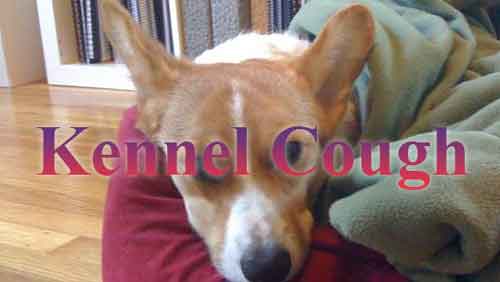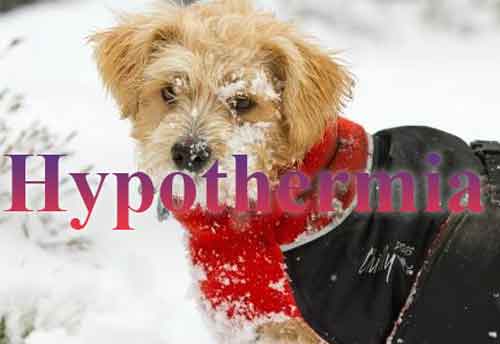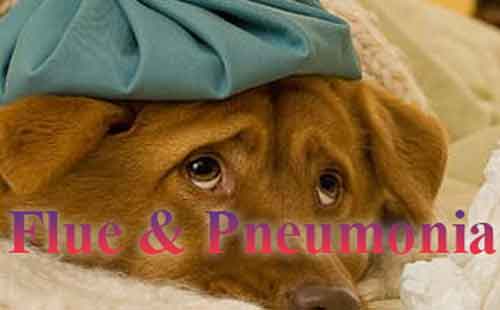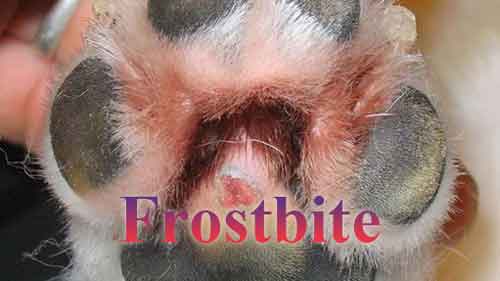Winter illnesses in dogs are a real problem that many pet parents ignore. Today in this guide, we will tell you about the most common Winter illnesses in dogs and their symptoms. So that you can identify your dog’s health issues before they worsen. We will also share preventions for these winter diseases in dogs and Treatments.
If you have a dog then you should be getting ready for the coming Winter. Many pet dog parents think that winter does not affect dogs because they are animals, and they have fur.
Unlike Humans, Dogs are real softies. Their immune system is weak and prone to many health issues. Dogs get all the human illnesses along with other health issues during winter. Today we will give you brief information about this Winter Illness in dogs Symptoms and their treatments.
Common Winter Illnesses in Dogs: Symptoms and Treatments
So you are here which means you are a concerned dog parent. You already know that your dog can catch Winter illnesses like cold, get the flu, along with many other Dog Winter disease and these are serious. During these cold days, dogs need to be warm and healthy.
Cold-weather dogs like Huskies do not get these problems but other breed dogs like Spitz, Retrievers, Combai, Bull Dogs, along with other short-coat dogs are very much prone to these health issues.
Also, you should know that small dog breeds feel cold much more than other dogs.
If you want to safeguard your dog from these Dog Winter illnesses then the first thing you want to do is keep your dog warm. They do not know the importance of staying warm and staying away from those cold breezes in the winter.
These cold breezes are dangerous for your dog. So, keep them warm and don’t let them wander and run outside during the pick time of Winter.
Now, we will list such common Sicknesses that your dog can get in Winter. Learn from these Winter illness in dogs symptoms to identify their health issues before its too late.
Also, there are some home remedies for these Winter illnesses in dogs with treatments that you can give to your dog for faster recovery.
Kennel Cough
Kennel cough, also known as canine infectious tracheobronchitis, is a highly contagious respiratory disease in dogs. It is commonly transmitted in places where dogs congregate, such as kennels, dog parks, and grooming facilities. Here are the Kennel Cough Winter illness in Dogs symptoms, preventions, and treatments-home remedies.

Symptoms:
This common Winter illness in dogs symptoms is a dry, hacking cough that often sounds like the dog has something stuck in its throat.
Sneezing and nasal discharge may also occur in this sickness. If your dog is suffering from kennel cough, they may face sneezing and have a runny nose.
Some dogs may even gag or retch as if trying to clear their throat. In some cases, they may also seem slightly lethargic or have a reduced appetite.
Prevention:
The most effective way to prevent kennel cough is through vaccination. You can ask your vet to give your dog a kind of vaccine that includes Kennel cough.
Avoid crowded places to avoid getting infected by outsiders. During these winter days when the possibility is higher, Limit your dog’s exposure to crowded places, especially if there are dogs showing signs of illness.
If your dog shows symptoms or has been in contact with an infected dog, isolate them to prevent the spread of the disease.
Treatment and Home Remedies:
The first thing you want to do is consult with your Vet. If you suspect your dog has kennel cough, it’s crucial to consult with a veterinarian. They may prescribe antibiotics to treat secondary bacterial infections.
Limit their movements, give proper nutritious warm food, and let them rest as much as possible. Provide a cozy and warm place until they get all strong and healthy.
I believe in home remedies as they are effective in such common winter illnesses. A small amount of honey can help soothe the throat. You can mix it with your dog’s food or give it directly.
If you are an extra caring parent like me who does not want to rest until your dog doesn’t feel better, you can give them Steam therapy. Get some hot water in a big bowl hold it below to their nose and let the steam work on its way.
Hypothermia in Dogs

One of the serious Winter Illnesses in dogs is Hypothermia. Hypothermia in dogs occurs when their body temperature drops below the normal range of 99.5–102.5°F (37.5–39.2°C). It can be caused by exposure to cold weather, wet conditions, or immersion in cold water.
Symptoms of Hypothermia in Dogs:
Shivering
Weakness and lethargy
Slow or shallow breathing
Cold ears and extremities
Muscle stiffness
Confusion or disorientation
Dilated pupils
Decreased heart rate
Preventive Measures:
Give your dog a warm and cozy place that ensures your dog has a warm and dry place to rest, especially during cold weather.
Minimize your dog’s time outdoors in extreme cold weather conditions.
Mostly weak dogs get Hypothermia and providing them with cold Protective Clothing is very important. Consider using Winter dog jackets to keep your pet warm, especially if they have short fur.
Some dogs do love to bathe during summer that doesn’t mean you have to bathe them every 3-5 days in winter too. Dogs feel cold and avoid wet conditions totally during winter days.
Older dogs and Puppes are more susceptible to hypothermia, so pay extra attention to their comfort in colder conditions.
Treatment and Home Remedy:
If your dog has Hypothermia then you must get to a vet. To get your dog to feel better you can also try these home remedies for Hypothermia in Dogs.
As a Home Treatment for this Winter illnesses in dogs and to promote comfort and healing at home during Hypothermia, Move to a Warm Environment, and give them a warm blanket with a warm bed. You can also try using a heater in your room and let your rest inside. Also, avoid rapid warming by using warm water or direct heat.
Also clean their private parts, nose, and ears with cotton cloth and keep them with you on the winter nights.
Sniffles
This is also one of the most common winter Illnesses in dogs. Sniffles are like a common cold that shows some common symptoms like runny nose, Watery discharge from the nose, some cough may occur during Sniffles in Dogs.
Symptoms like Watery Eyes, and low energy levels may occur too. Your dog will also sleep a lot during this illness.
Prevention:
Maintaining a Clean Environment is the first thing you want to do if your dog has Sniffles. Regularly clean your dog’s living area to reduce the risk of exposure to allergens and irritants. Give them a clean, warm, and cozy place to rest.
Avoid Exposure to Sick Dogs to minimize this illness.
Make them drink a lot of fluids and give them a good chicken-based homemade meal that is warm and good. Good, fresh, and nutritious food will help your dog to recover from this kind of illness. It will also help to prevent any upcoming winter sicknesses in dogs.
Treatments and Home Remedy:
It is normal cold sickness in dogs. You can still Consult a Veterinarian If your dog shows persistent or severe symptoms. They will prescribe some antibiotics which will help your dog to recover faster.
Home remedy is a good choice for Winter illnesses in dogs like sniffles and colds. Steam Therapy, Saline Nasal Drops, and giving them honey are some proper home remedies you can provide to your dog to get rid of this Dog Winter disease faster.
Flu and Pneumonia
Flue and Pneumonia are quite common in newborn puppies and old age dogs. Commonly dogs even die due to pneumonia and flu. It is an illness related to the lungs. Lungs get inflamed due to the large amount of cough in them.

Symptoms:
This Winter illnesses in dogs symptoms is that your dog may sneeze a lot, show runny nose symptoms, dry cough, and watery eyes are some common symptoms that may occur during flu and Pneumonia. Your dog may also feel very weak and lose of appetite.
Treatment and Home Remedy:
Proper veterinary attention is needed if your dog has flu and pneumonia. Tell your dog about it and get prescribed with proper medicines.
All the previous home remedies like honey, warm nutritious food, a warm bed, and lots of fluid are needed to help your dog recover faster.
Dog Frostbite

Frostbite in dogs can occur when their skin and other tissues freeze due to exposure to extremely cold temperatures. Here are the symptoms, preventions, treatments, and some home remedies for frostbite in dogs:
Symptoms:
If your dog has frostbite then the affected areas may appear pale, gray, or bluish. The skin and tissues will feel unusually cold and very soft. Swollen and painful areas are often accompanied by a lack of feeling or responsiveness.
The affected skin may also become crusty, hard, or red like almost blood is going to come out. It mainly happen on their paw when a dog run on the snow for a long time.
These are some preventions for Frostbite Winter illnesses in Dogs–
Prevention:
Use Dog Shoes for Outing during Winter.
Limit exposure to cold
Provide Protective clothing.
Limit contact with cold surfaces during the extreme cold days and nights.
Do not wet your dog when it is very cold weather.
Treatments and Home remedies
If your dog is suffering from major frostbite then veterinary attention is needed. Consult your vet and tell them about the situation and they will suggest the best guide.
In some other conditions, you can simply provide them warm clothes, slow warming them with a heater, cover them with blankets, and hug them for some time may also help to recover their body temperature back to normal.
Avoid rubbing as it can damage the affected tissues more. Also, do not try to heat them directly.
You can also apply pet-friendly ointment on the affected area to soothe the area and relieve some pain.
Arthritis
Arthritis can occur in all ages of dogs. Arthritis in dogs, specifically known as canine osteoarthritis or degenerative joint disease, is a condition characterized by inflammation and degeneration of a dog’s joints. This inflammation often leads to pain, stiffness, and a reduced range of motion in the affected joints.
One of the serious Winter illnesses in dogs Arthritis symptoms are given below-
Symptoms:
Dogs may avoid putting weight on the affected leg, have Difficulty in moving, especially after periods of rest, and have A decrease in overall physical activity, Dogs may react with vocalization or aggression when touched in the affected areas.
Overall your dog will limit their basic movement due to pain in their joints.
Preventive, and Treatment
Preventing or managing this Winter illness called arthritis in dogs involves maintaining a healthy weight, providing a balanced diet, regular exercise, and addressing any joint issues promptly. Early intervention can help slow down the progression of arthritis and improve a dog’s quality of life.
Diagnosing arthritis in dogs often involves a combination of physical examinations, X-rays, and sometimes additional tests. If you suspect that your dog may be suffering from arthritis, it’s crucial to consult with a veterinarian for a proper diagnosis and appropriate treatment plan. They will also prescribe medicines and pain relievers.
Dry and Flaky Skin
Another very common Winter Illnesses in dogs are Dry and flaky skin. Winter affects all skin including dog skin. If you are not taking care of your dog properly then your dog can have rough, dry, and flaky skin which may lead to a lot of itching and fur loss.
Home remedy:
You can easily tell if your dog has dry skin by simply checking their skin carefully. If you find something like that, you can easily treat it at home and cure it before it turns into an infection.
Simply get some coconut oil and massage in all areas nicely and make sure the oil is getting in the skin. It may take a lot of oil and may become oily. You can remove extra oil with cloths but it is necessary to massage their skin with the coconut oil.
You can also add a solution adding some haldi powder in coconut oil and massage it in their lower stomach and private parts to get rid of the infections.
Final Words: Winter days are cold and risky for dogs. As our dogs do not care much about their health and wander around, they may catch a cold and become prone to many Winter Illnesses. We have shared these common winter illnesses in dogs that should be taken care of during these cold days.
Look after these Dog Winter Illnesses symptoms and take early measures by implementing the prevention measures mentioned in this article. Also, must take your dog to veterinary attention.
We hope you liked this article. Share with your friends and Visit PawFactsNguide for more guides and tips like this.
